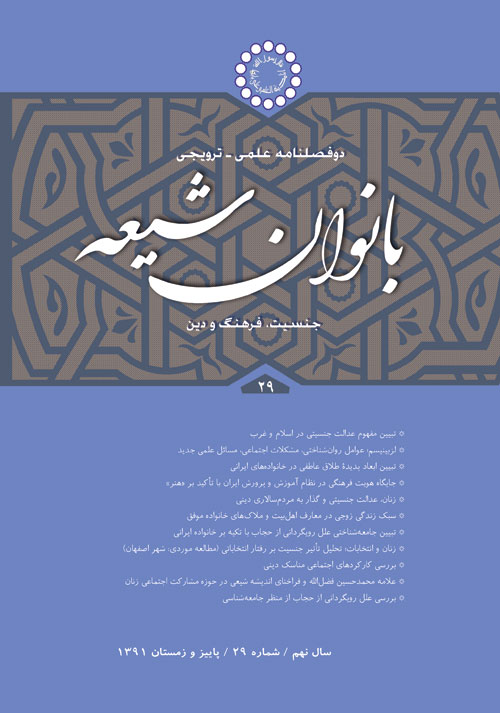Fatemah and Defending of Vilāyat
Author(s):
Abstract:
Fatemah (p. b. u. h.) is one of the Islamic figures enjoying particular virtues and characteristics. She is the prophet's highly esteemed daughter and she was trained by him. Furthermore, she is the wife of one of the greatest men in the history of Islam, i.e. Ali (p. b. u. h.). The outstanding characteristics of her majesty have promoted her to a very noble status and her views and ideas in regard with different issues are considered as a criterion for the religious people. One of the issues which happened after the prophet's passing away was the issue of his caliphate, which eventually resulted in a division of two groups among the Moslems: those who approved the status quo and those who disapproved it (i.e. the followers of Ali, p. b. u. h.). What was Fatemah's (p. b. u. h.) position about this issue? Did she remain silent about this dispute or did she take the side with a specific individual or stance? What attempts did she make? The present article, based on a library method of research and data analysis, tries to study different aspects of the actions taken by the prophet's daughter, Fatemah (p. b. u. h.), about the caliphate after the prophet (p. b. u. h.). At the end, it is revealed that she did all she could in order for the justice to be practiced and caliphate be granted to Ali (p. b. u. h.).
Language:
Persian
Published:
Journal of Shiite women, Volume:7 Issue: 24, 2011
Page:
7
https://magiran.com/p939123
سامانه نویسندگان
مقالات دیگری از این نویسنده (گان)
-
Riḥlah or the Journey in Pursuit of Hadith: Causes and Effects on The Science of Hadith
Qasim Bostani *
Journal of Hadith doctrines, -
واکاوی شرط سید مرتضی در تحقق علم از خبر متواتر
*
نشریه مطالعات اصول فقه امامیه، پاییز و زمستان 1400




